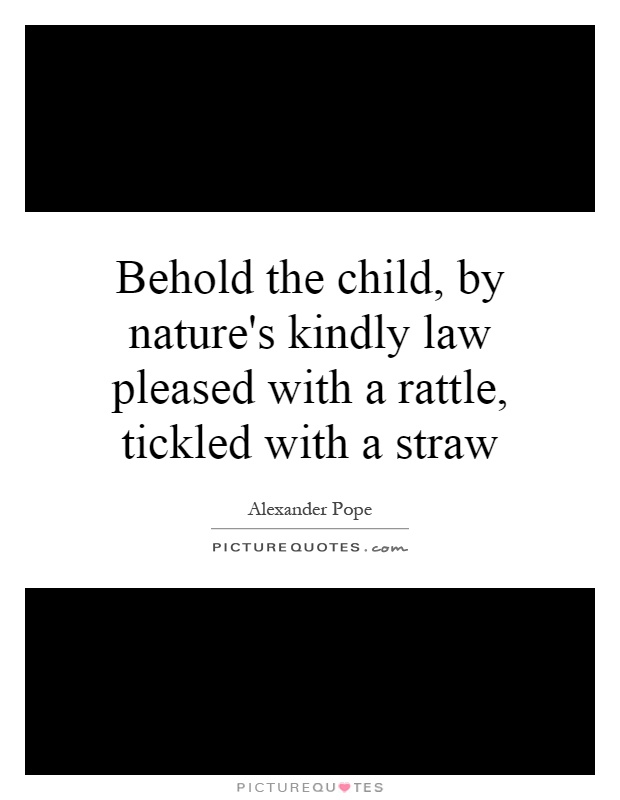Behold the child, by nature's kindly law pleased with a rattle, tickled with a straw

Behold the child, by nature's kindly law pleased with a rattle, tickled with a straw
In Alexander Pope's poem "Essay on Man," he explores the nature of humanity and our place in the universe. One of the key themes in the poem is the idea that humans are governed by natural laws and that our desires and behaviors are shaped by these laws. This idea is encapsulated in the famous line, "Behold the child, by nature's kindly law pleased with a rattle, tickled with a straw."This line speaks to the simplicity and innocence of childhood, and how children are easily amused and delighted by the simplest of things. A child's joy in playing with a rattle or being tickled with a straw is a reflection of their pure and unspoiled nature. They are not burdened by the complexities and worries of adulthood, but instead find pleasure in the small and mundane aspects of life.
Pope uses this image of the child to illustrate a larger point about human nature. He suggests that, like children, we are all governed by natural laws and instincts that shape our desires and behaviors. Just as a child is naturally pleased by a rattle or tickled with a straw, so too are we driven by our own innate desires and impulses.
However, Pope also suggests that there is a deeper meaning behind this simple pleasure. He argues that even in our most basic and instinctual behaviors, there is a divine order and purpose at work. The child's delight in a rattle or a straw is not just a random occurrence, but a reflection of the beauty and harmony of the natural world.
Overall, Pope's line about the child and their simple pleasures serves as a reminder of the innocence and purity that exists within all of us. It is a call to embrace our natural instincts and desires, and to find joy in the small and simple things in life.












 Friendship Quotes
Friendship Quotes Love Quotes
Love Quotes Life Quotes
Life Quotes Funny Quotes
Funny Quotes Motivational Quotes
Motivational Quotes Inspirational Quotes
Inspirational Quotes